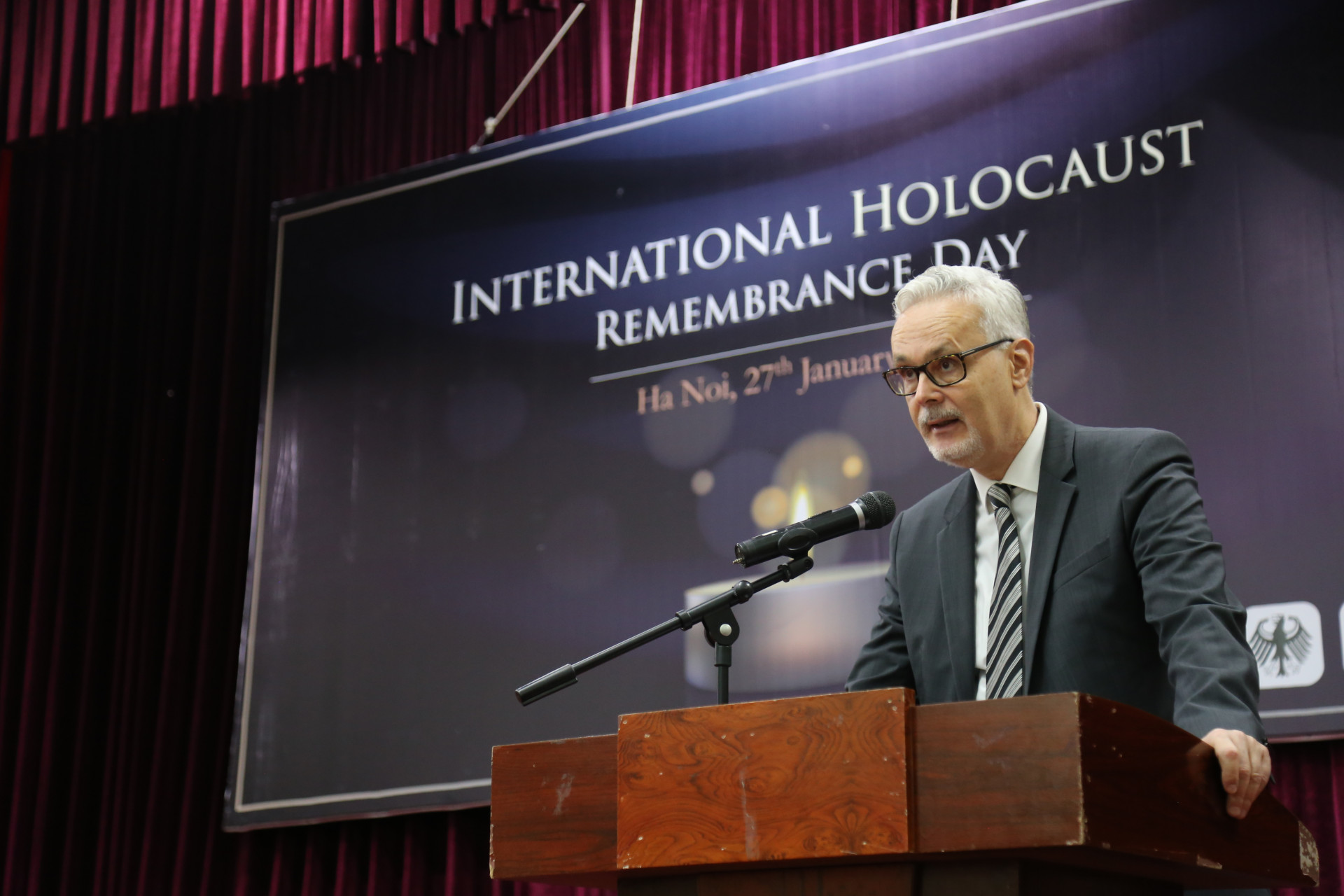
Ambassador of Israel Nadav Eshcar, Ambassador of Germany Dr. Guido Hildner, Vice Rector of the Hanoi University of Social Sciences and Humanities Dr. Hoang Anh Tuan, and Resident Coordinator of the UN in Vietnam Kamal Malhotra.
The day of January, 27th was designated by the United Nations General Assembly as the International Holocaust Remembrance Day, commemorating the victims of the holocaust,
This date was selected because it marked the liberation of Auschwitz - Birkenau, the largest extermination camps of the Nazis in the year 1945. In World War II more than six million Jews were killed by the German Nazi regime in Europe just because they were Jews.
Speaking at the event, Prof. Dr. Hoang Anh Tuan (Vice Rector of University of Social Sciences and Humanities) emphasized the meaning of the Holocaust Remembrance Ceremony, as an activity that reviews a historical period in which millions of people were killed by the Nazis in World War 2. This event also reminds today's generation to join hands in preventing such crime and brutality from recurring in a similar tragedy.
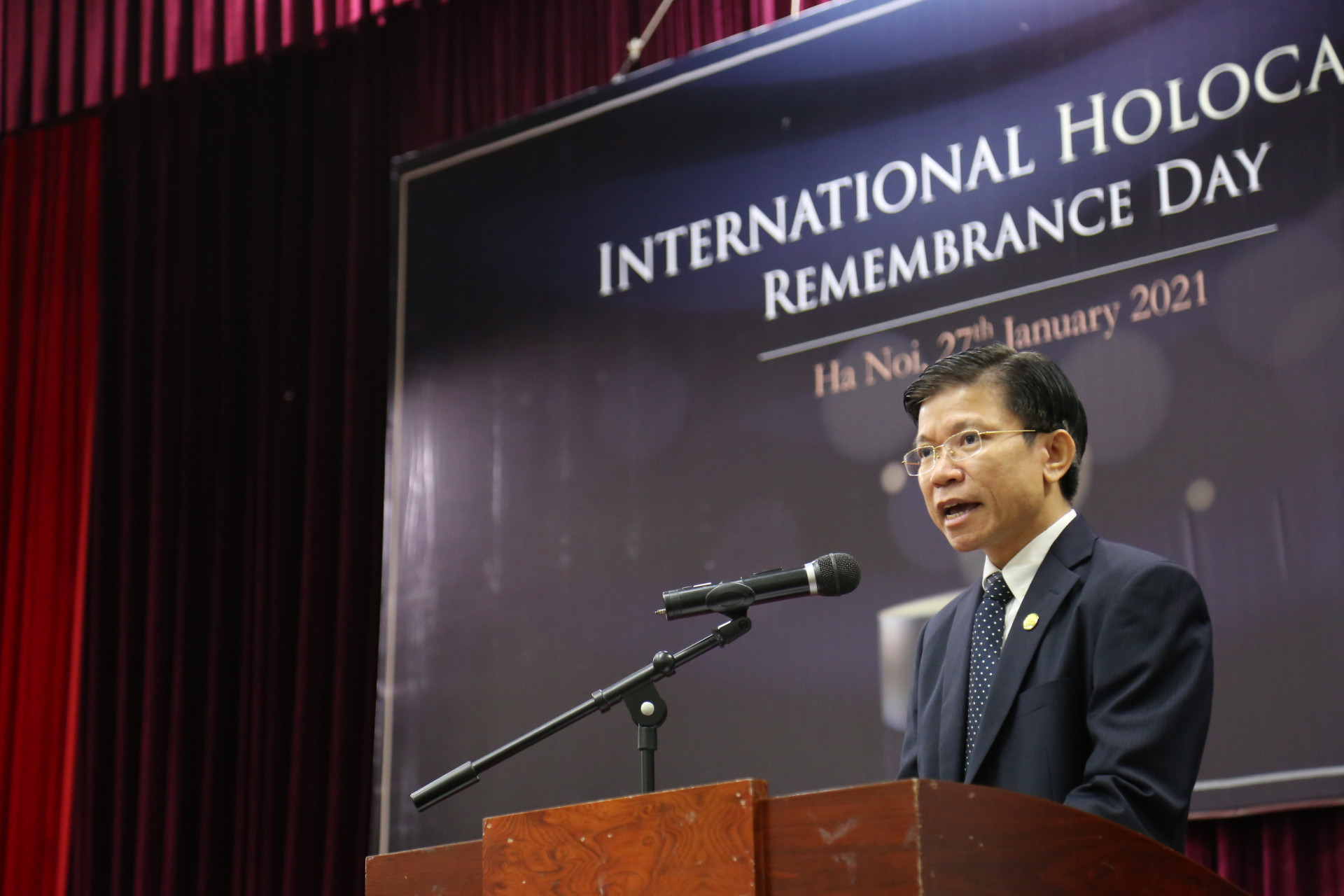
Prof.Dr Hoang Anh Tuan delivers his speech
Prof. Dr. Hoang Anh Tuan also highlighted the importance of international cooperation, education, law and security in building trust, resolving conflicts, and developing a culture of dialogue aimed at promoting human rights and values. Education and dialogue between countries and international organizations make an important foundation for a tolerant and peaceful society. For the University's staff and students, this event is an opportunity to learn more about the Holocaust through the dialogues with representatives of relevant embassies in Vietnam and a documentary about Holocaust.
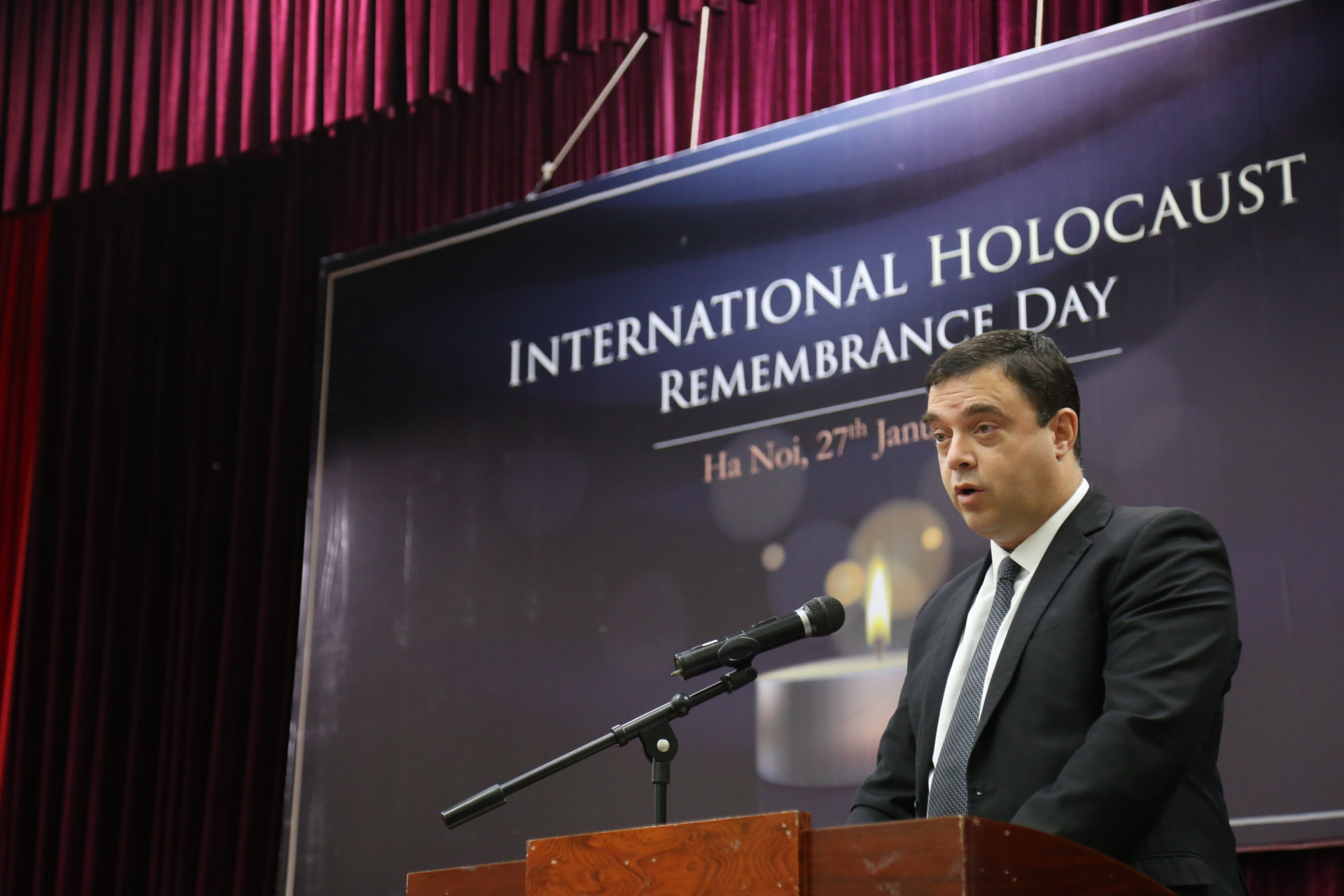
Ambassador Nadav Eshcar delivers his speech
Mr. Nadav Eshcar (Ambassador of Israel to Vietnam) said that the Holocaust was not an emotional decision but made based on Nazi strict and systematic considerations, and was aimed at all classes in the Jewish community. If the Nazis had the upper hand in World War II, they would have finished their work quickly and many would not have been fortunate enough to survive to this day. He said that the Holocaust exists as one of the most terrible human catastrophes, and in the future there is still a possibility of such a tragedy. Therefore, it is each person's responsibility to make sure it never happens again.

Dr. Guido Hildner delivers his speech
Dr. Guido Hildner (Ambassador of the Federal Republic of Germany to Vietnam) confided that the Holocaust was the darkest period and an indisputable fact in the history of Germany. Germany has acknowledged its historical responsibility and made many efforts to compensate for the losses of the Jewish community. Celebrating the Commemoration Day is as such an important way to honor those who died in the disaster, so that their names will not be erased or forgotten.
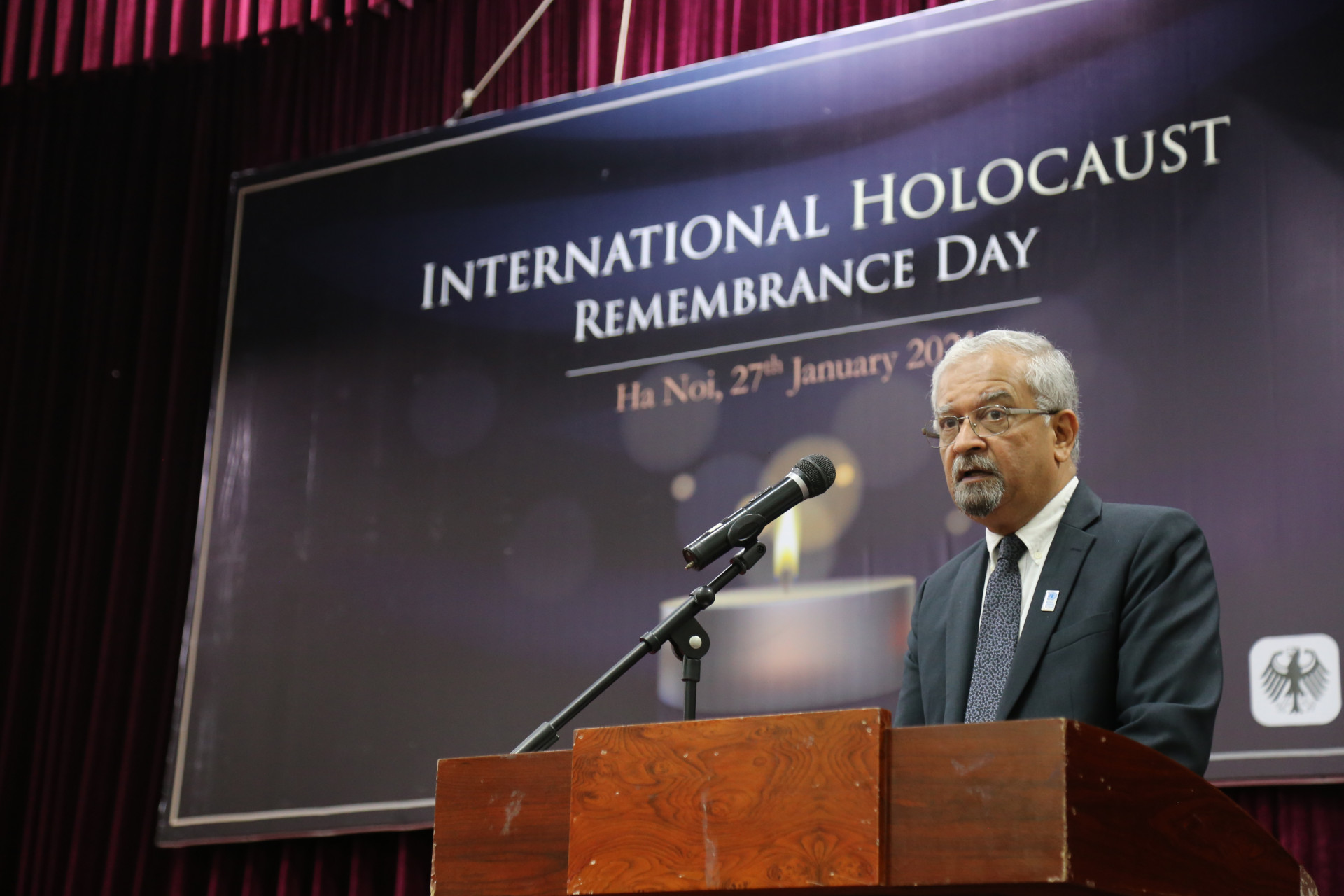
Resident Coordinator of the UN in Vietnam Kamal Malhotra delivers his speech
On behalf of the UN Organization in Viet Nam, Resident Coordinator of the UN in Vietnam Kamal Malhotra quoted the Secretary-General of the United Nations that, during the Covid-19 period, long-term cracks and injustices were revealed, contributing to the rise of anti-Semitism and xenophobia. This shows that the anti-Semitic spirit as well as the Holocaust arose from long-standing prejudices, ignorance, resentment, and widespread corruption in society rather than the mistakes of a few individuals. To help in repelling it, it is necessary for all social sectors to participate in this process. Nations need to eliminate hatred and discrimination to build a comprehensive, diverse society that respects human rights.
After the speeches, the main participants lighted up symbolic candles to remember the victims of the Holocaust, a tradition of Israel and Jews around the world.

Prof. Dr. Hoang Anh Tuan on behalf of USSH lit a candle to commemorate Berta Pik, a woman murdered at Auschwitz concentration, Poland in 1944
Next, the German film “Vernichtet” (Exterminated) was screened. “Vernichtet” (Exterminated) by director Andreas Christoph Schmidt tells the story of the widowed Rosa Labe’s family with her 3 children in Glambeck village of Brandenburg, Germany. From 1938, the Labe family was torn apart and exploited in various places by the German Nazi regime, as long as they were useful labour tools. They were murdered or disappeared and were unable to meet each other again. The painful journey of the Labe family is a horrifying example of what victims of Nazism experienced.
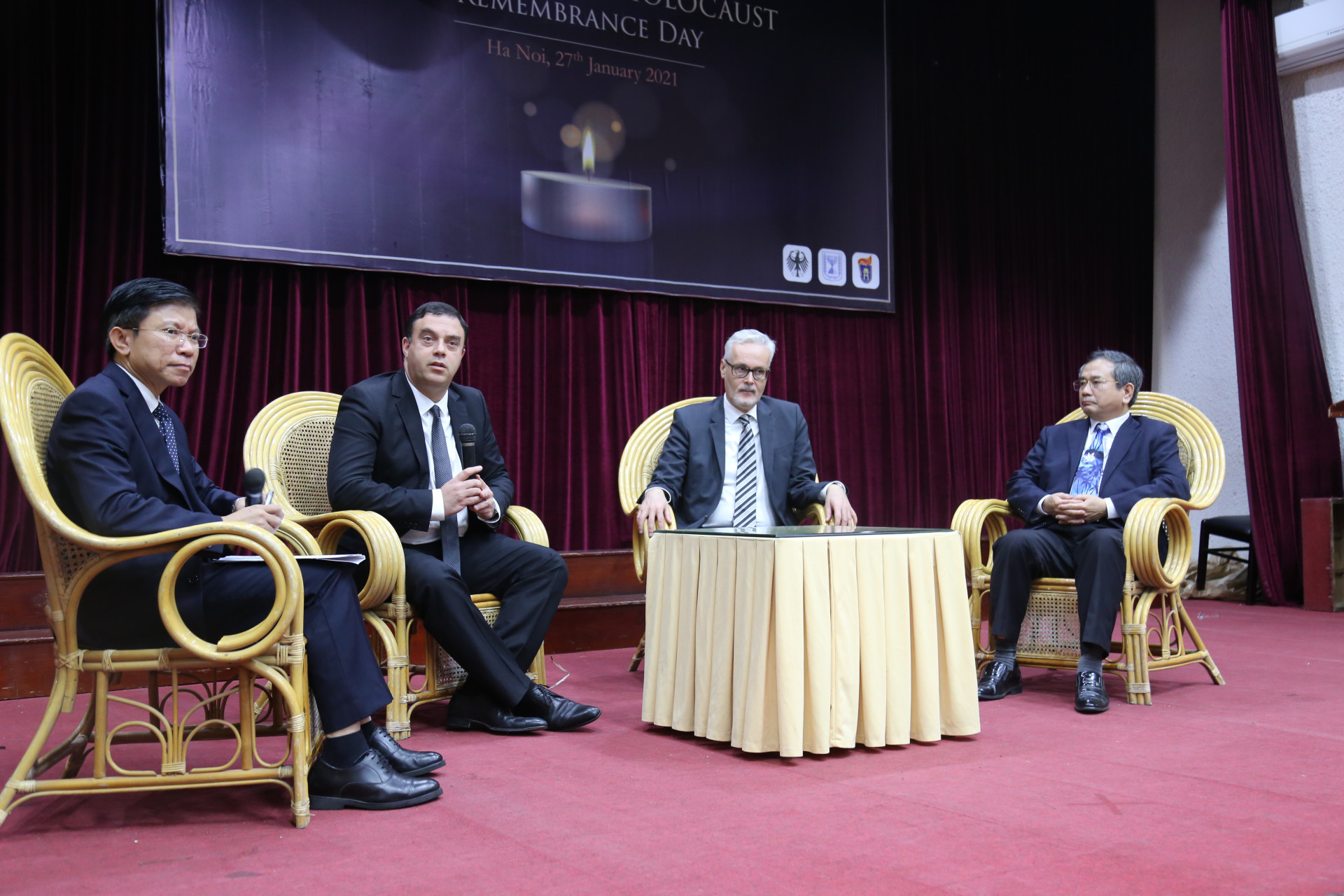
The participants discussing with the students (from left to right): Prof. Dr. Hoang Anh Tuan (Vice Rector of USSH), Mr. Nadav Eshcar (Ambassador of Israel to Vietnam), Dr. Guido Hildner (German Ambassador to Vietnam), Prof. Dr. Pham Hong Tung (President of Vietnam Institute for Science and Development - VNU)
During the discussion session, students of USSH expressed their feelings and thoughts about the film and the Holocaust. They were deeply impressed and moved by the fate of the Jews who suffered the brutal treatment during World War II, and related it to the similar events in Vietnam and neighboring countries. As a younger generation born in peacetime, the students nevertheless remember their role in understanding the past and drawing lessons from it to create a better future. Some questions were sent to the speakers on such issues as the education and public information of the Holocaust in Germany and Israel; the situation of anti-Semitism in Germany today; the young generation's contributions to healing the wounds left by hatred and war, etc.
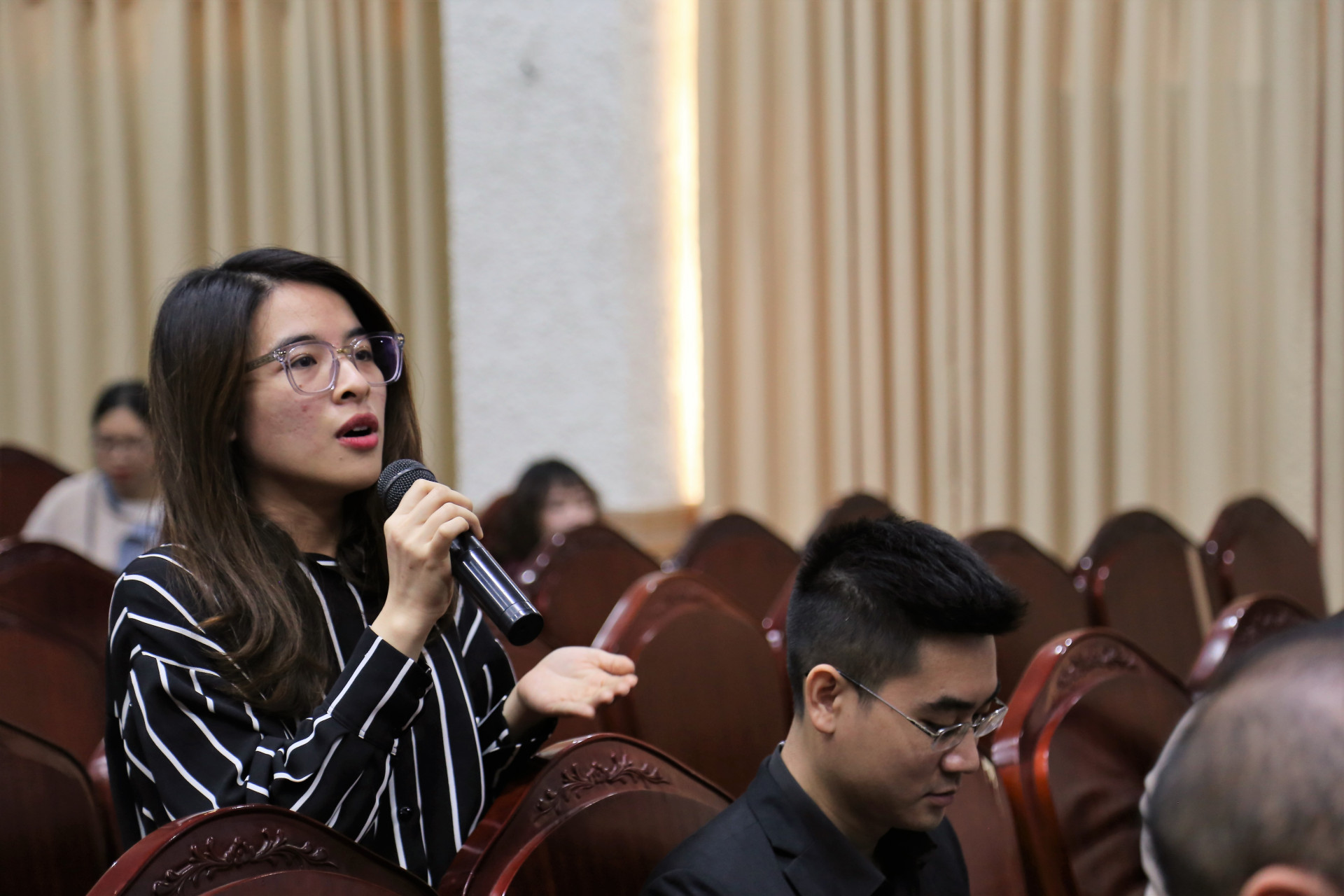
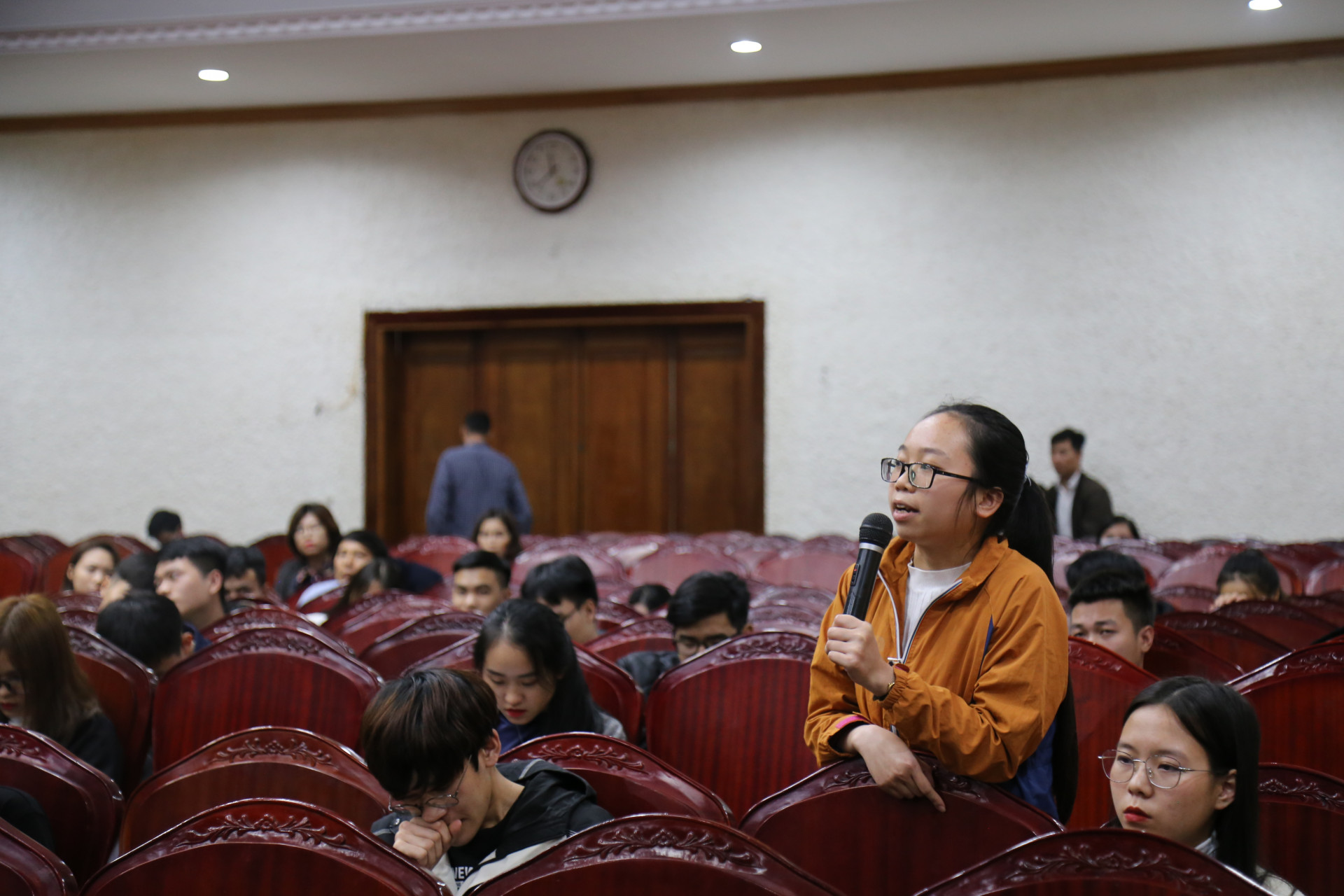
Students of USSH pose questions to the speakers
Author: Trần Minh
Reader Comments
Newer articles
Older articles